Understanding Biomolecular Processes and Designing Emergent Biomaterials
What is the Beckman Scholars Program?
The Beckman Scholars Program is funded by the Arnold and Mabel Beckman Foundation. In 2022, The Ohio State University joined 13 other universities to participate in the Beckman Scholars Program. This funding allows for 2 exceptionally talented, full-time undergraduate students to participate in a 15-month mentored research experience. This funding will last for 3 years, with support for 2 students each year.
The link for application submission for 2024-2025, is available at the following: https://osu.az1.qualtrics.com/jfe/form/SV_3mABdHLBYk2rdvU
Application deadline is February 5, 2024.
Applicants - there will be an information session taking place (via Zoom): Thursday, January 18th from 6:30 to 7:30pm. Please contact Emily Potter at: potter.276@osu.edu to request the Zoom meeting link
For other information, please contact us at: beckmanscholars@osu.edu
$18,200 student stipend ($6,800 first summer, $4,600 academic year, $6,800 second summer)
$2,800 in supply and travel funds
$5,000 faculty mentor stipend
Timeline for 2024-2025
Application deadline - February 5, 2024.
Decisions will be announced mid-March 2024.
The 2024-2025 program cycle will start mid-May 2024.
Beckman Scholars must be full-time students in good academic standing intending to pursue an advanced science degree or other scientific pursuits.
Students must be pursuing a major in Chemistry and Biochemistry, Chemical and Biomolecular Engineering, Mechanical and Aerospace Engineering, or Physics.
Beckman scholars must be citizens or permanent residents of the United States or its possessions. Students holding DACA recipient status are also eligible.
Sophomore standing preferred, although freshman might be considered as well.
Previous research experience is not required.
Research advisor is not required. Selected students will be guided in their selection of a research mentor.
Application process
After evaluating the applications, a faculty panel will choose candidates for a short, in-person interview. The selections will be based on merit, diversity, equity, and inclusion. Previous research experience is desirable but not required. Final choices will be made based on (i) academic preparation, (ii) an abiding interest in and motivation for research, and (iii) intellectual acumen and grit to pursue higher education. Selected students will be guided in the process of choosing a research mentor among those listed below.
Application requirements
Advising Report: Unofficial transcript
Personal Statement: A two-page description of personal background, previous research experience (if any), career goals, interest in and expected benefits from participating in the Beckman Scholars Program. (double-spaced, Helvetica font, size 11)
STEM Essay: A two-page essay on any STEM topic to showcase scientific literacy and communication skills (double-spaced, Helvetica font, size 11). Pick a STEM topic that interests you but not necessarily one that you are involved in. Tell us why this topic interests you.
Page limits are for text, figures and references are excluded from the page limits.
The Beckman Integrity Pledge should be completed and added to the application.
Reference letters: Please arrange for two letters of recommendation, at least one of which must be from a STEM faculty, to be submitted directly to beckmanscholars@osu.edu with the subject title “Recommendation for Last name, First name” (e.g., Recommendation for Smith, Jane). Letter should be a PDF file named “Last name student_last name referee.pdf” (e.g., Smith_Johnson.pdf)
Deadline for the 2024-2025 application cycle is February 5, 2024. The following is a link for application submission: https://osu.az1.qualtrics.com/jfe/form/SV_3mABdHLBYk2rdvU
OSU Beckman Scholars
Scholars
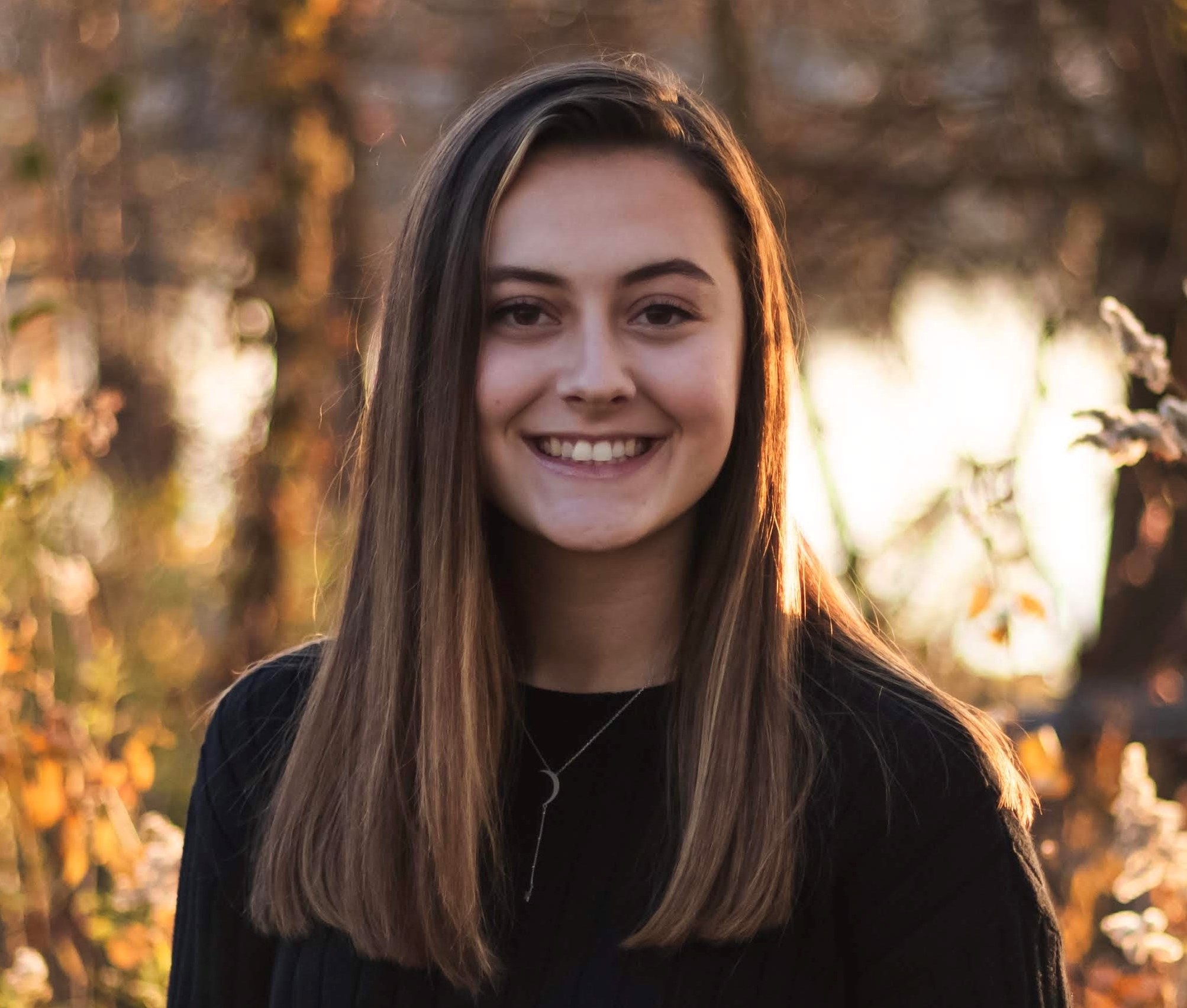
Project: Understanding the evolution of a cadherin bond essential for hearing
Faculty Mentor: Marcos Sotomayor.
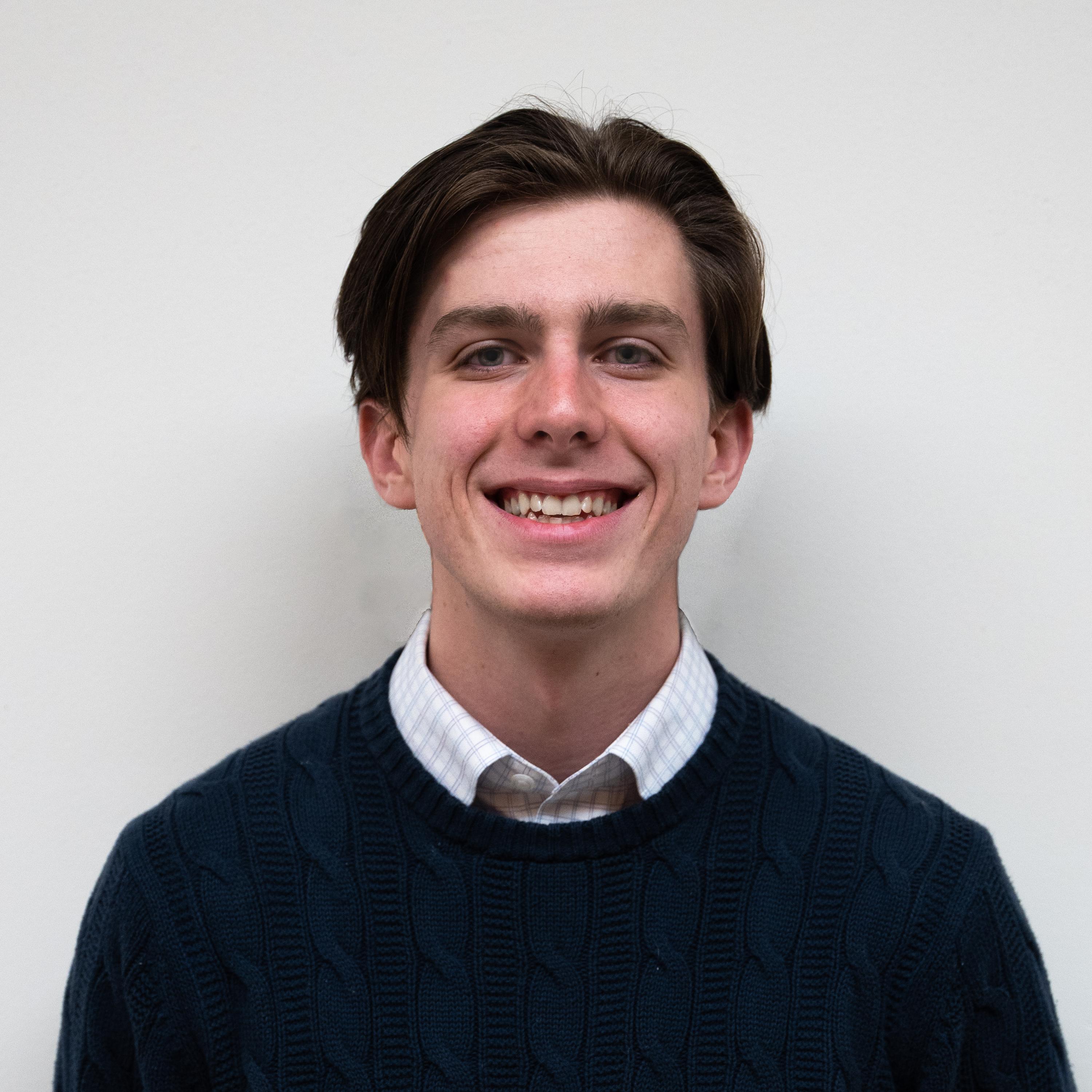
Project: Quinone methide precursors for the treatment of inhibited acetylcholinesterase and butyrylcholinesterase
Faculty Mentor: Christopher Hadad.
Activities
Poster presentations summer 2022
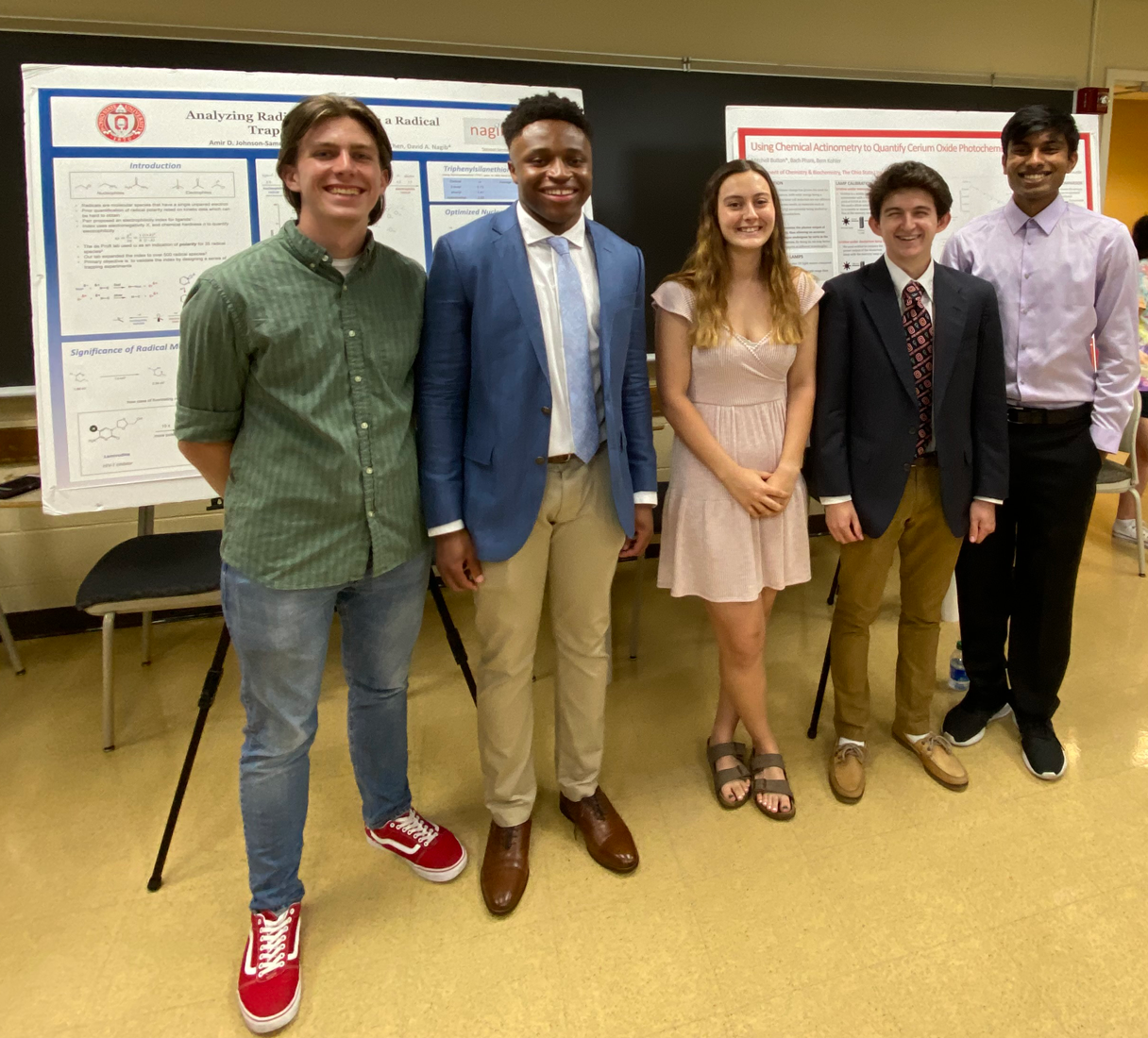
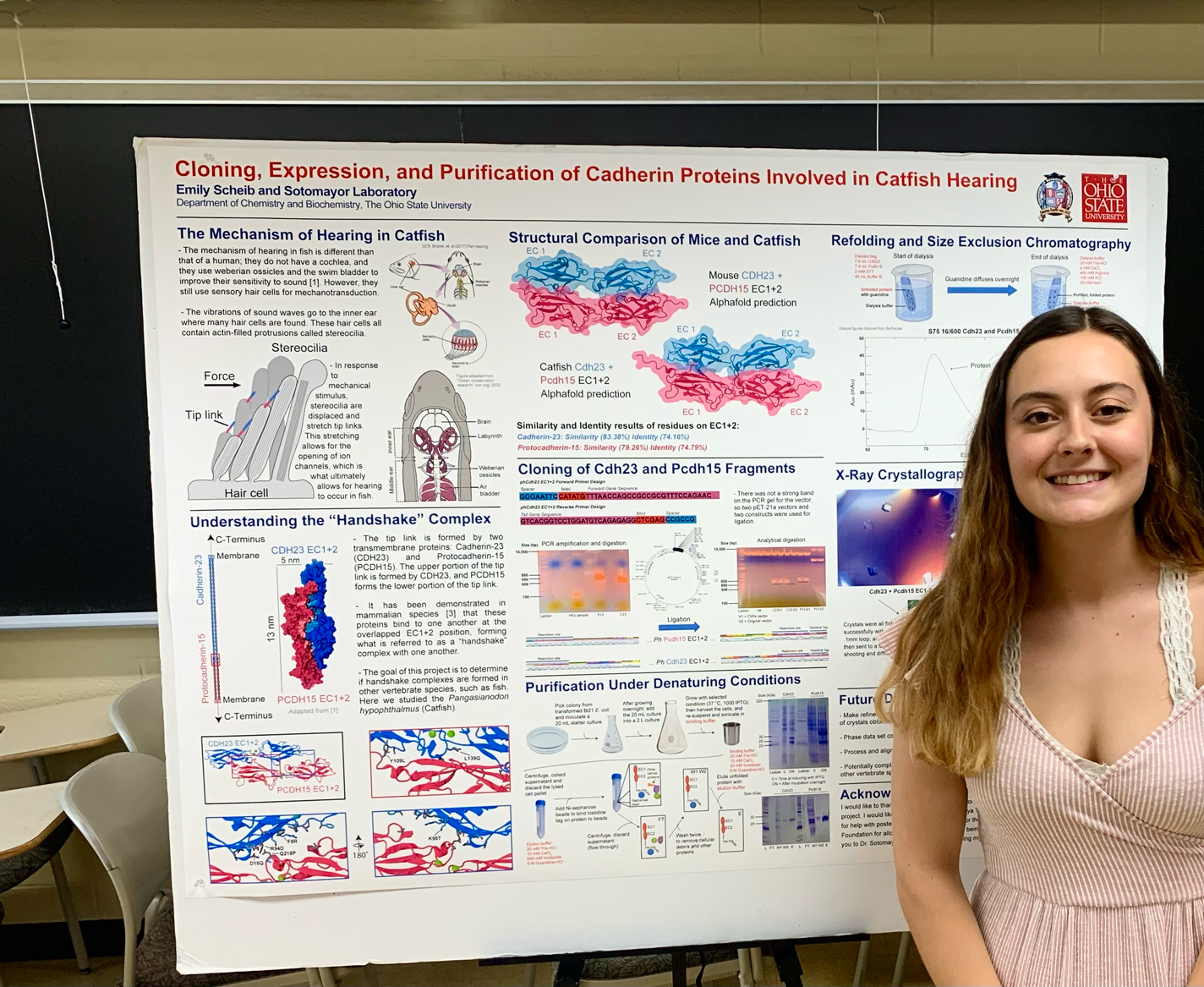
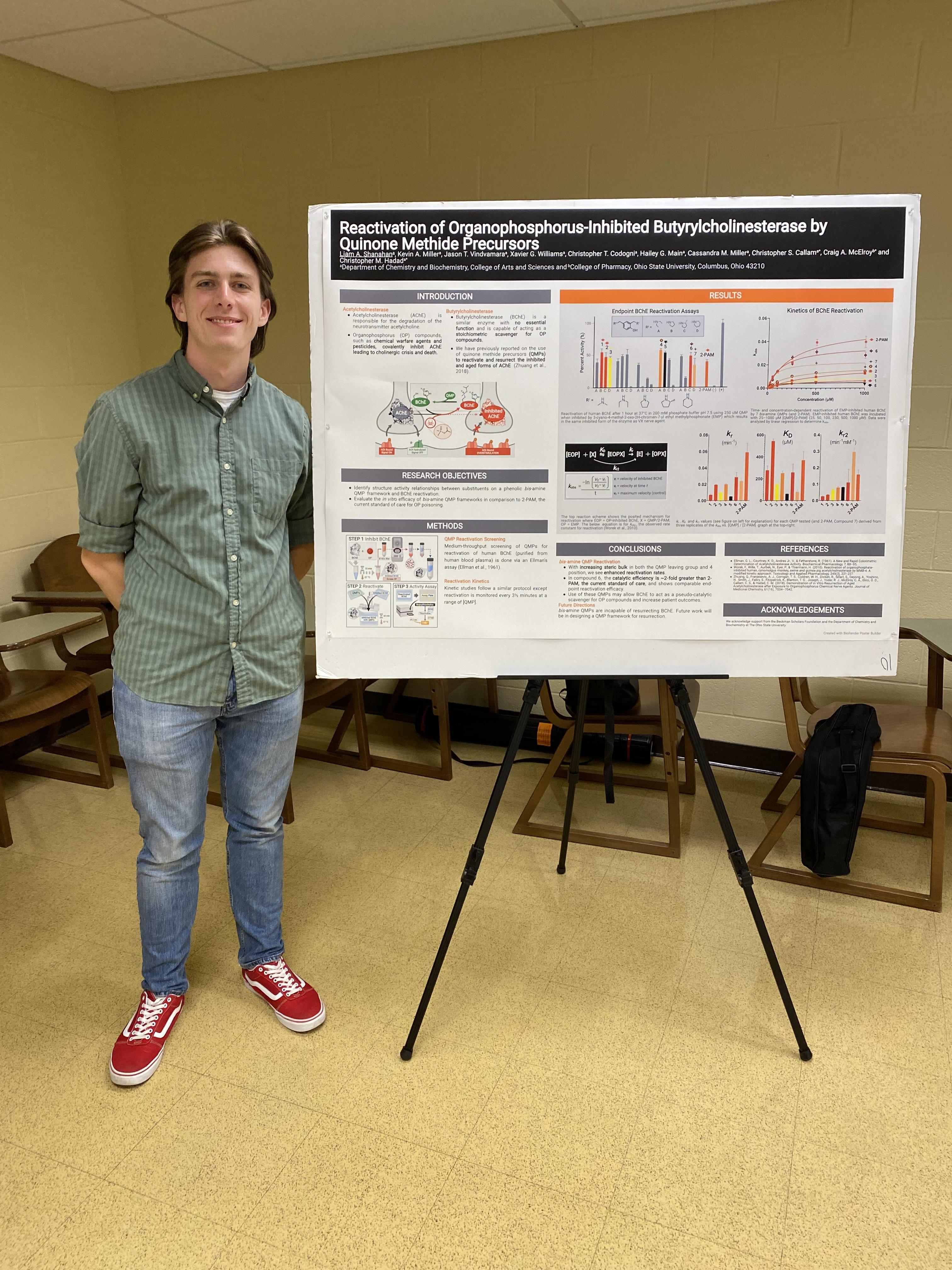
Beckman symposium Urbana-Champaign 2022
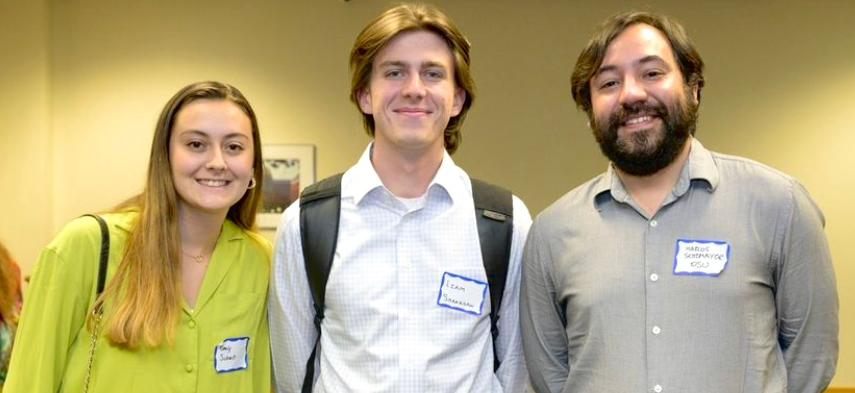
Scholars
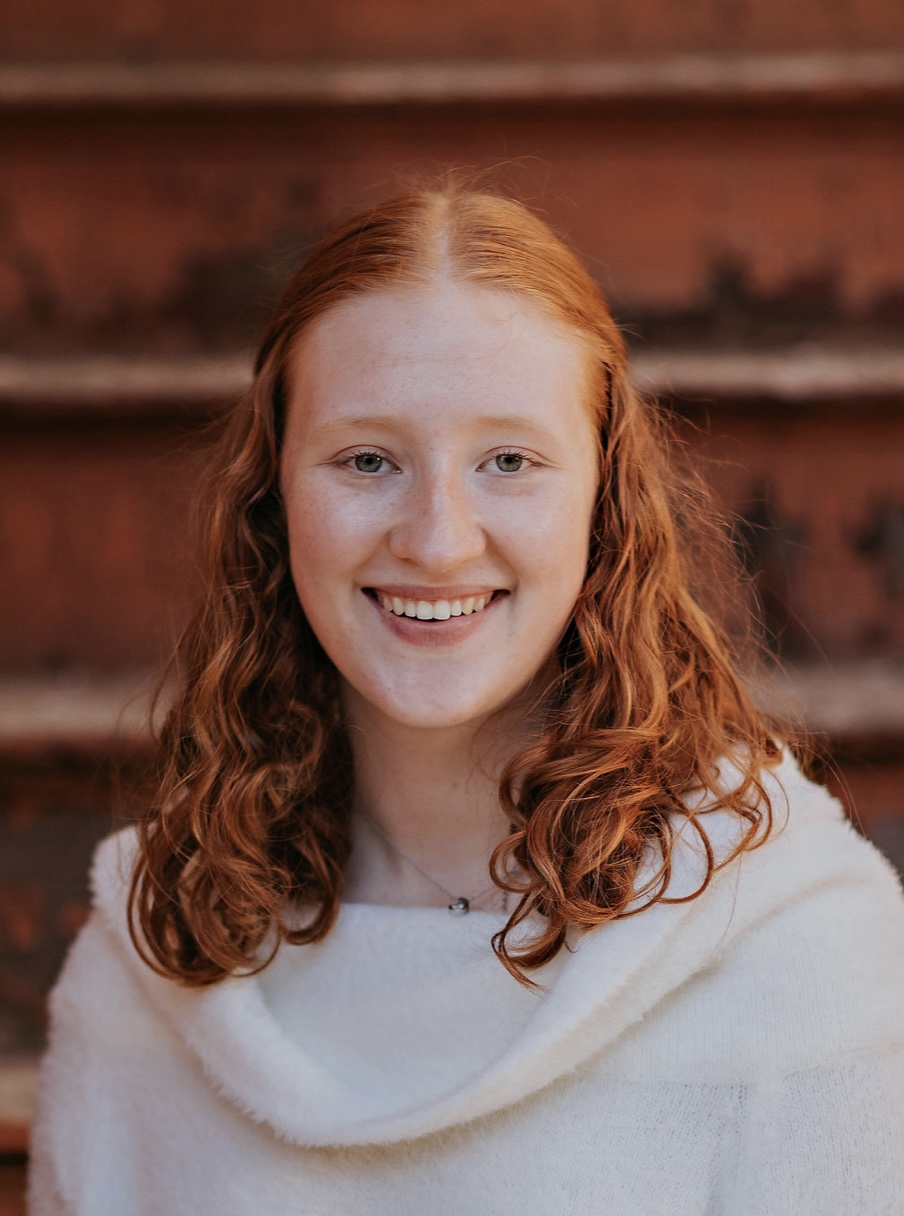
Project: Design and Synthesis of Novel Quinone Methide Precursors for the Treatment of Organophosphorus Poisoning
Faculty Mentor: Christopher Hadad.
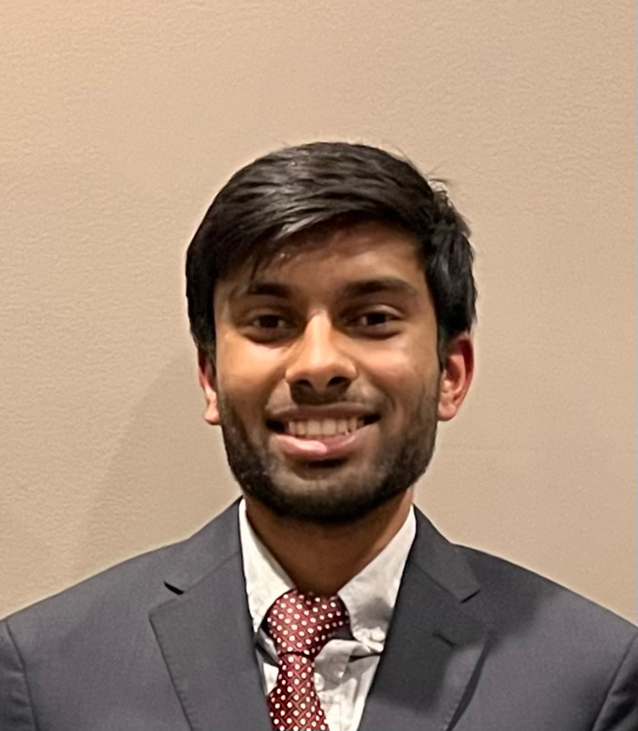
Project: Understanding the Regulatory Mechanism of Breast Cancer Metastasis on Various Cellular Processes
Faculty Mentor: Jonathan Song.
Elton Cao
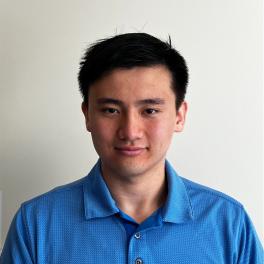
- Mentor: Jonathan Song
- Project title: The effects of induced electrical fields on HUVECs vessel permeability
Ruby Mitchell
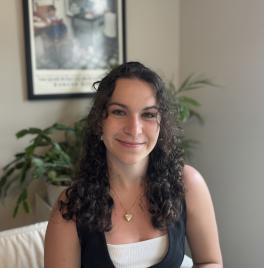
- Mentor: Bern Kohler
- Project title: Quantifying reactive oxygen species in melanin through fluorescence spectroscopy
OSU Beckman Mentors
Beckman Scholars will conduct their research with one or more of the 13 diverse faculty mentors. The mentors’ cutting-edge and highly collaborative research programs are supported by robust external and internal funding. By providing a strong research experience that has often culminated in research publications, these faculty mentors have built a track record of positively shaping the career growth of numerous undergraduate mentees.
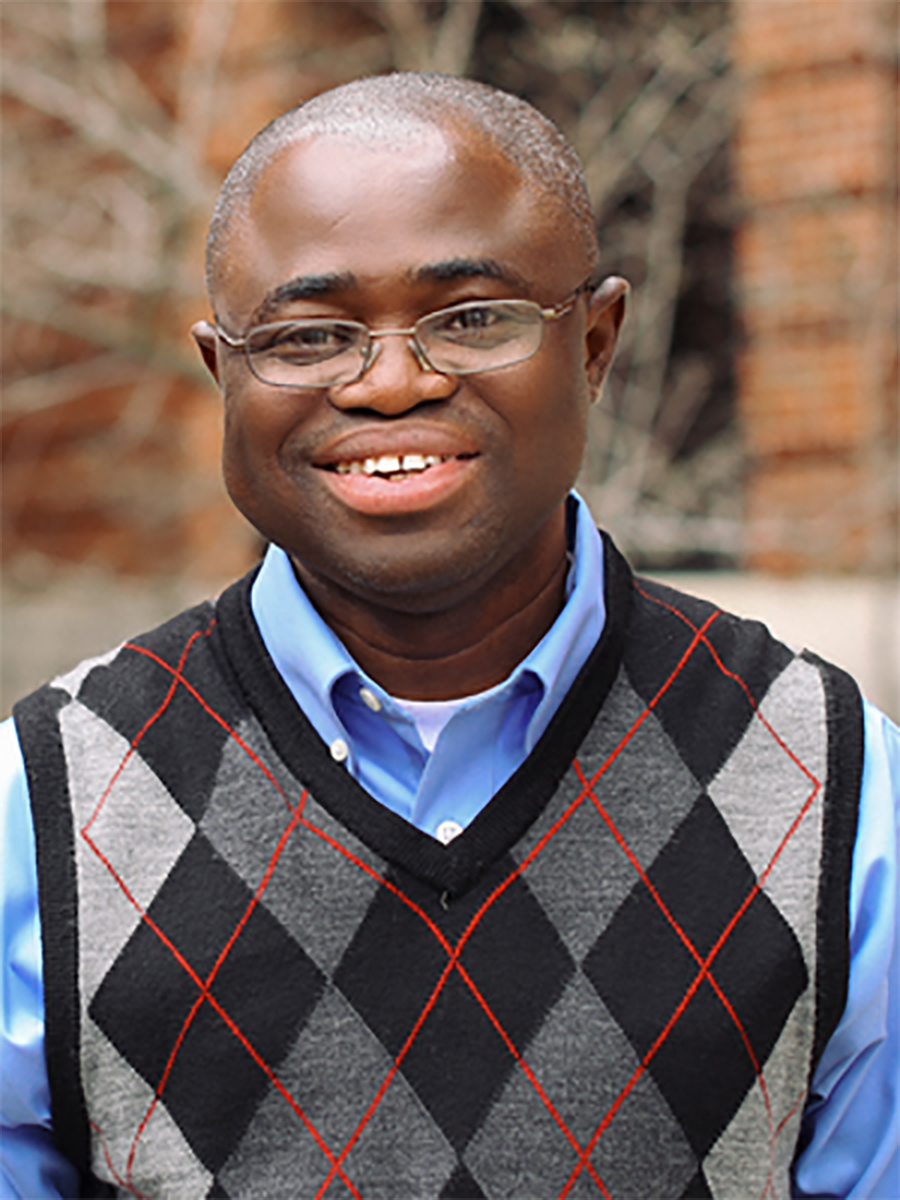
Abraham Badu-Tawiah - Chemistry and Biochemistry
Research in the Badu group focuses on bioanalytical method development to enable ultra-sensitive chemical detection in underserved communities. The specific and ongoing collaborative project of interest to the Beckman Scholars Program is the development of paper-based devices for finger prick blood collection, in-chip immunoassay to simultaneously capture multiple colorectal cancer (CRC) biomarkers, room temperature storage of the captured proteins, and direct on-chip analysis by a portable mass spectrometer. The paper-based microfluidic device is deliverable by mail for self-testing followed by analysis of collected samples, either immediately or later. The simplicity of our approach allows it to meet requirements for FDA CLIA (Clinical Laboratory Improvement Amendments) waiver. Therefore, patients are expected to perform only two tasks when using the device: (1) application of sample, and (2) the addition of a wash buffer to remove unbound species. Participating scholars will develop expertise in paper-based immunoassays, paper device fabrication using wax-printing and laser cutting technology, and mass spectrometry analyses. We collaborate with Dr. Hisham Hussan at the OSU Wexner Cancer Center for device testing on patient samples. The overall objective is to improve CRC screening rates among young adults and in underserved groups by providing inexpensive, easy-to-use test that is also sensitive and specific to offer high predictive power in early CRC detection.
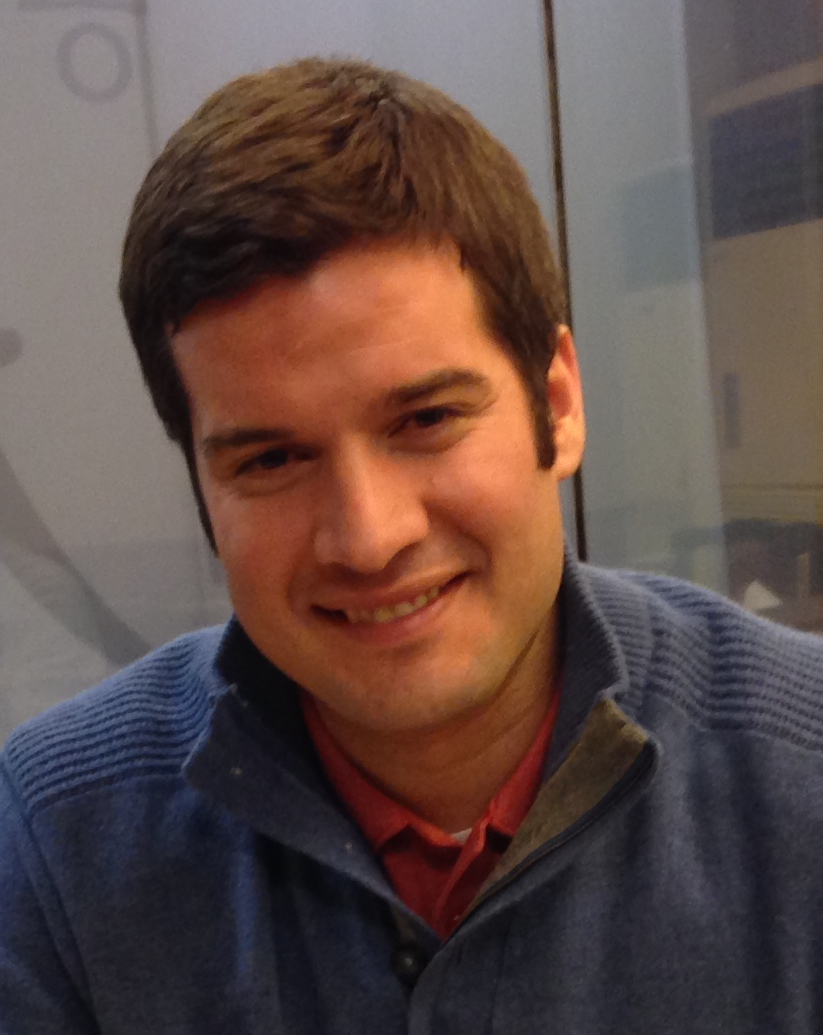
Carlos Castro - Mechanical and Aerospace Engineering
Our laboratory seeks to advance DNA nanotechnology design and fabrication methods and to develop DNA nanodevices for biological applications. A major focus of our group is to develop DNA-based measurement devices to probe biophysical properties of molecules and molecular complexes. We have collaborated with Profs. Michael Poirier and Ralf Bundschuh to apply these tools to study the structure and conformational dynamics of chromosome subunits. We are also collaborating with Prof. Jonathon Song to implement DNA devices to engineer cell membranes, for example to allow fluorescence-based sensing of molecules or forces in the cell microenvironment. Another key focus of our lab is enhancing the function of biomolecular devices by developing hybrid structures that integrate DNA structures with nanoparticles (e.g., gold nanoparticles for photoresponsive devices, collaboration with Prof. Jessica Winter) or proteins (e.g., protein force sensors, collaboration with Prof. Marcos Sotomayor).
Collaborations with other Beckman Mentors: Michael Poirier, Jon Song, Jessica Winter
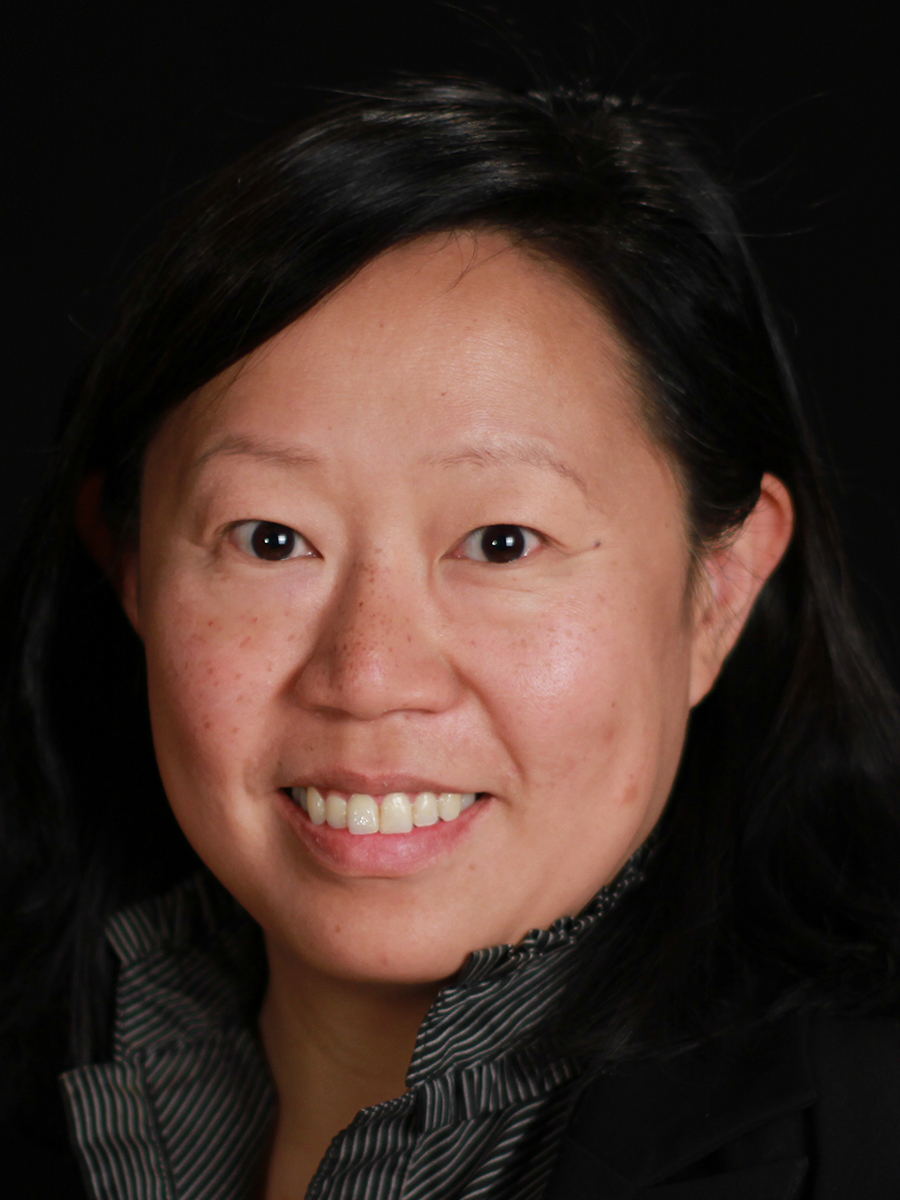
Anne Co - Chemistry and Biochemistry
The Co laboratory combines materials synthesis, property measurements, in-situ characterization tool design and development to understand the chemical processes involved in energy storage and conversion. Current projects include: (1) developing platform technologies for fast charging battery materials; (2) developing platform technologies for creating catalysts materials for the efficient electrocatalysis of carbon dioxide, organic acids and alcohols to useful complex chemicals. (3) developing tools for in-situ and operando methods for probing lithium transport, understanding battery failure mechanisms and catalyst selectivity. Professor Co’s projects are highly interdisciplinary with opportunities for Beckman Scholars to interact with researchers from other fields of science and engineering, and from industry.
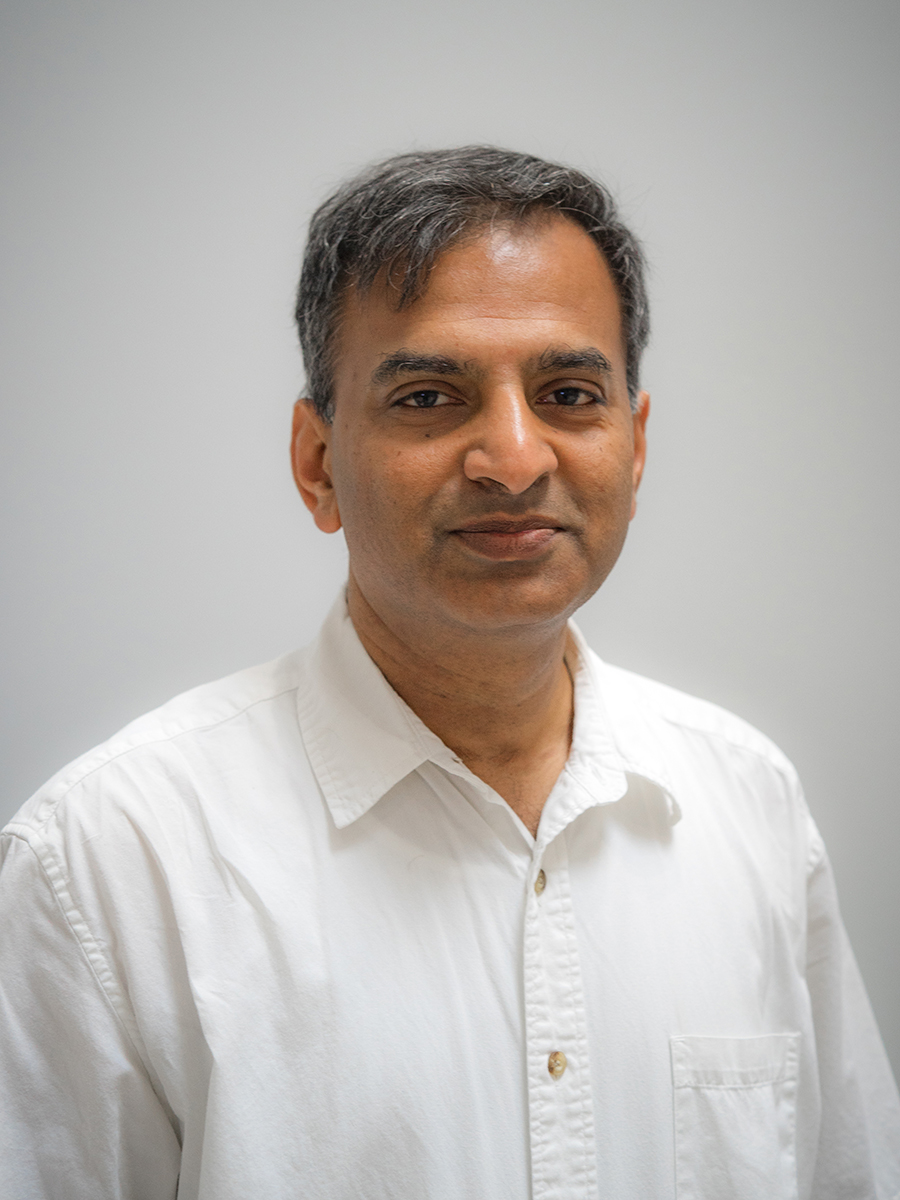
Venkat Gopalan - Chemistry and Biochemistry
We seek to understand how resident proteins modulate the function of ribonucleoprotein (RNP) enzymes through cognate RNA structural changes, a theme with broad significance given the pervasive role of RNPs in tissue complexity and human diseases. As an experimental model, we use RNase P, an essential and ubiquitous RNP that catalyzes tRNA maturation, because its assembly intermediates comprising partial suites of protein subunits and a catalytic RNA have fractional activity relative to the complete RNP. To elucidate how structural changes link to functional outcomes in this RNP, we use kinetic studies, footprinting, mass spectrometry, and ensemble/single-molecule fluorescence spectroscopy.
We are also interested in the nexus between RNase P and diseases. One instance of neurodegeneration in mice results from the failure of nuclear RNase P to process a mutant precursor tRNA. We are now testing the premise that single-nucleotide mutations in tRNAs affect structure and thereby influence substrate recognition by RNase P variants. Insights from these studies on defective tRNA biogenesis should help elucidate the molecular basis of certain diseases associated with tRNA mutations.
Collaborations with other Beckman mentors: Jane Jackman, Michael Poirier, Jon Song
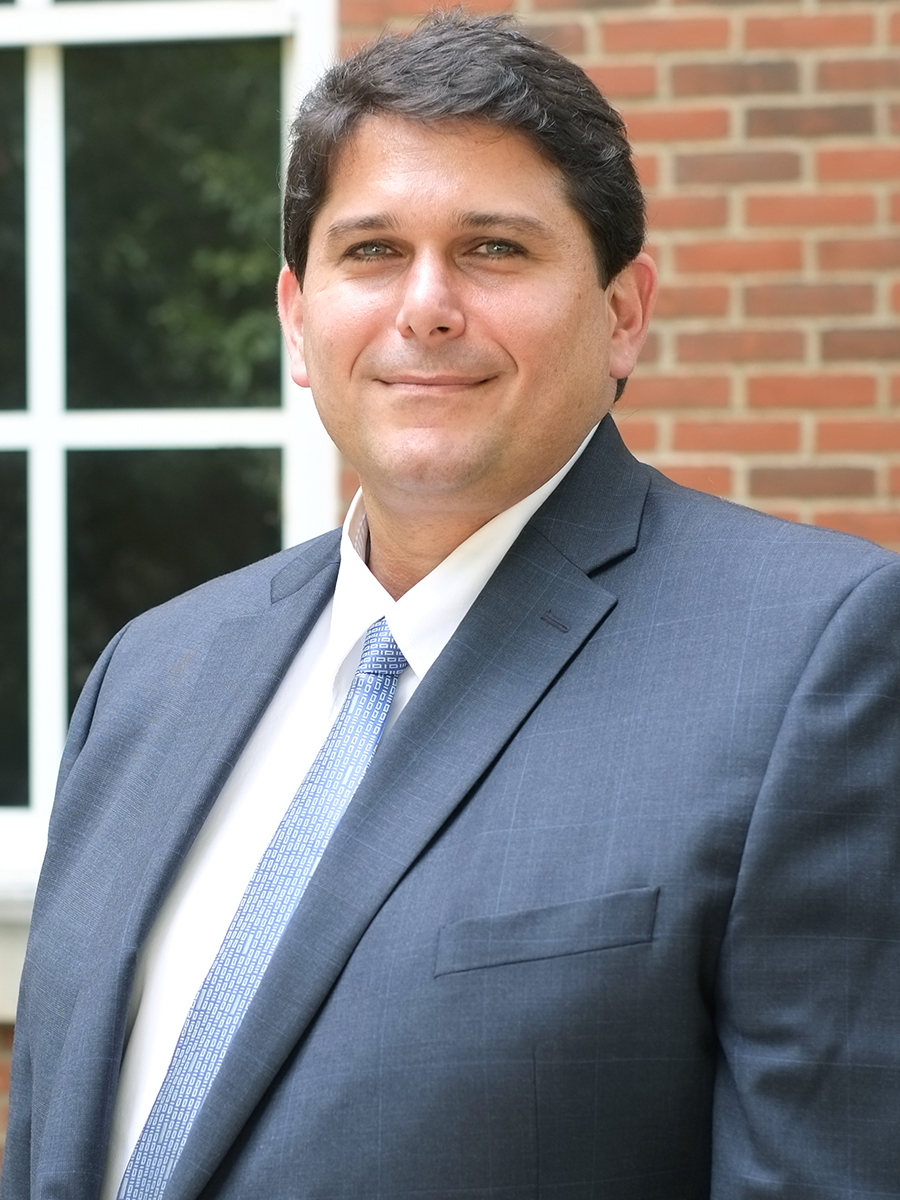
Christopher Hadad - Chemistry and Biochemistry
The Hadad research team uses computational modeling, organic synthesis, and biochemical evaluations to design, synthesize, and evaluate the efficacy of novel drug-like compounds for the treatment of organophosphorus poisoning. An undergraduate student could be involved in one of these approaches as part of our research team, perhaps doing computational modeling for the design of novel therapeutics or the synthesis, characterization and biochemical evaluation of individual compounds for in vitro studies.
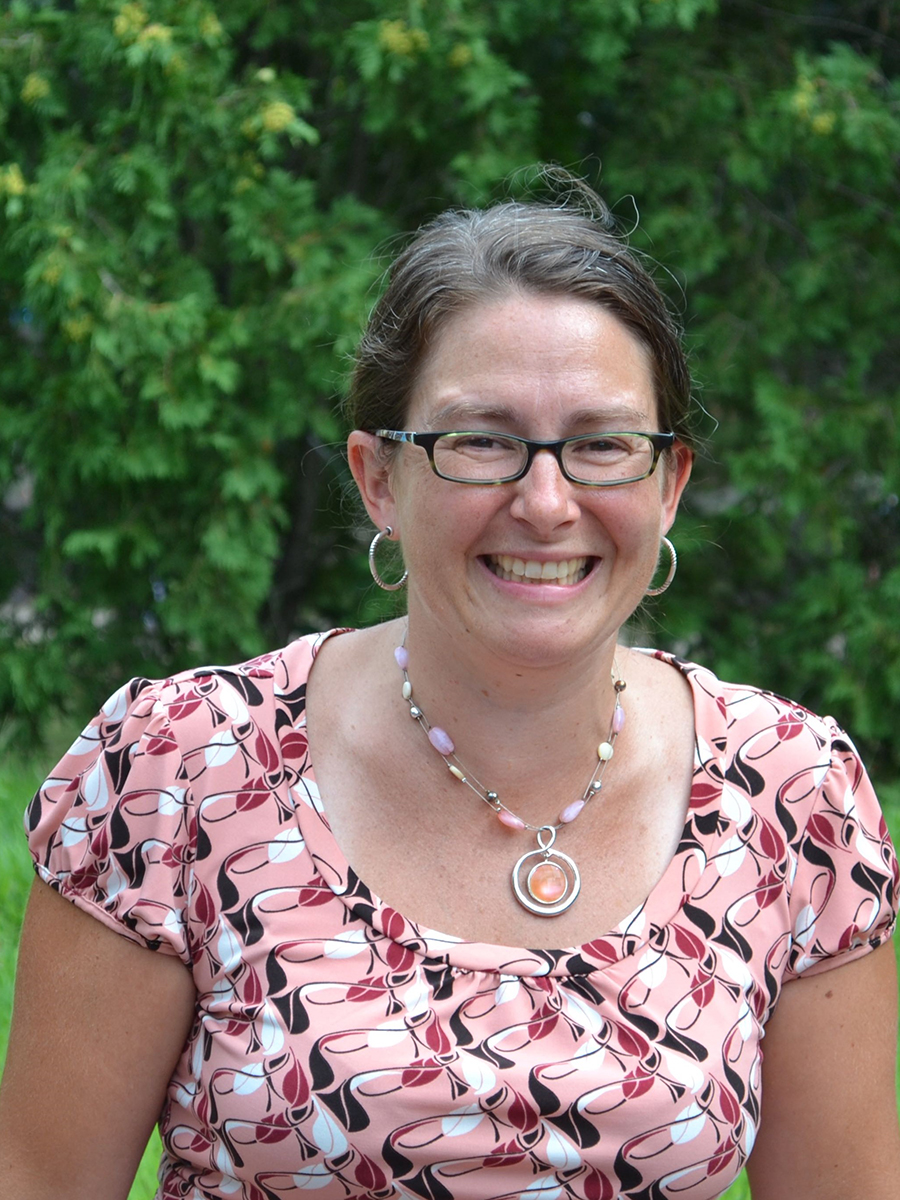
Jane Jackman - Chemistry and Biochemistry
The projects in the Jackman lab revolve around two enzymes, the tRNAHis guanylyltransferase (Thg1) and the tRNA m1G9 methyltransferase (Trm10). Although both enzymes were originally discovered in yeast, our work has expanded to focus on family members from all three domains of life because of additional functions for these enzymes beyond tRNA modification. Both Thg1 and Trm10 share another interesting feature; while their chemical reactions are similar to reactions catalyzed by other well-known families of enzymes, early work suggested that they did not catalyze these reactions in the same way as other well-characterized enzymes. For this reason, we hypothesized that our studies would uncover new enzymology of RNA-related enzymes. We use the tools of mechanistic enzymology (including transient enzyme kinetics), molecular structure and RNA biochemistry to investigate the molecular mechanisms of these enzymes; we are striving to uncover a complete picture of how these unusual enzymes catalyze their reactions. We are also very interested in evaluating the functions of Thg1 and Trm10 in living cells; to do this we use the powerful tools of genetics, with several key model systems, including Saccharomyces cerevisiae (yeast), Dictyostelium discoideum (slime mold) and Danio rerio (zebrafish).
Collaborations with other Beckman mentors: Venkat Gopalan
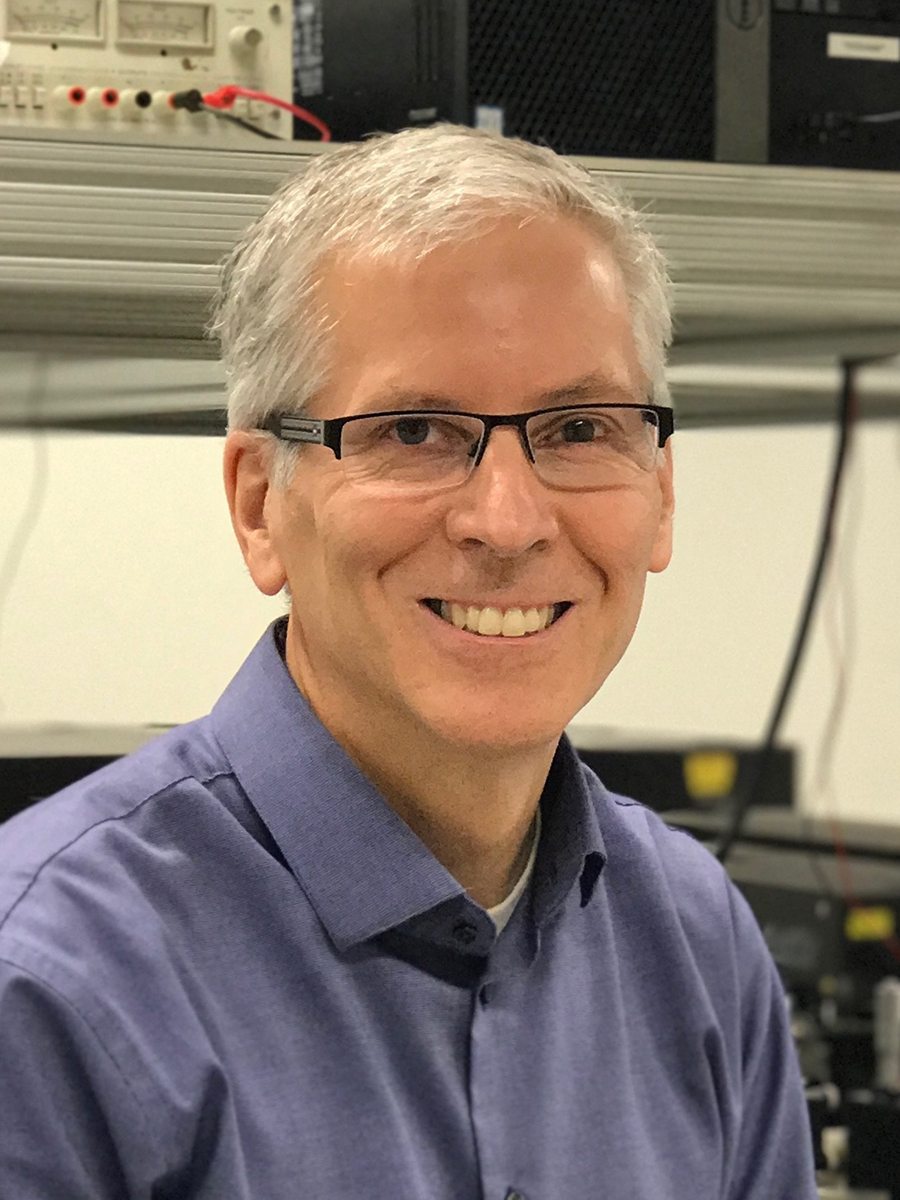
Bern Kohler - Chemistry and Biochemistry
To meet humankind’s ever-increasing demand for energy in ways that mitigate lasting environmental damage, more effective technologies for capturing, converting, and storing energy from sunlight are urgently needed. Researchers in the Kohler Group use UV to mid-infrared femtosecond lasers to probe the movement of charges and energy in supramolecular systems and nanomaterials that show promise for solar energy conversion. Of special interest are carbon nanomaterials inspired by the ubiquitous melanins that color organisms throughout the tree of life. Our work aims to understand the molecular-level interactions in lab-made and bioinspired carbon nanomaterials like melanins that are responsible for their common properties such as broadband optical absorption, paramagnetism, chelation, anti- and pro-oxidant character, electronic and ionic conductivity, and intriguing photothermal behavior. These properties are attractive for applications in bioelectronics, catalysis, chemo- and bio-sensing, environmental remediation and energy conversion and storage. In close collaboration with synthetic organic chemists and theoreticians, we pursue bottom-up and top-down approaches to produce and characterize green optoelectronic materials for the coming bio-renewable economy.
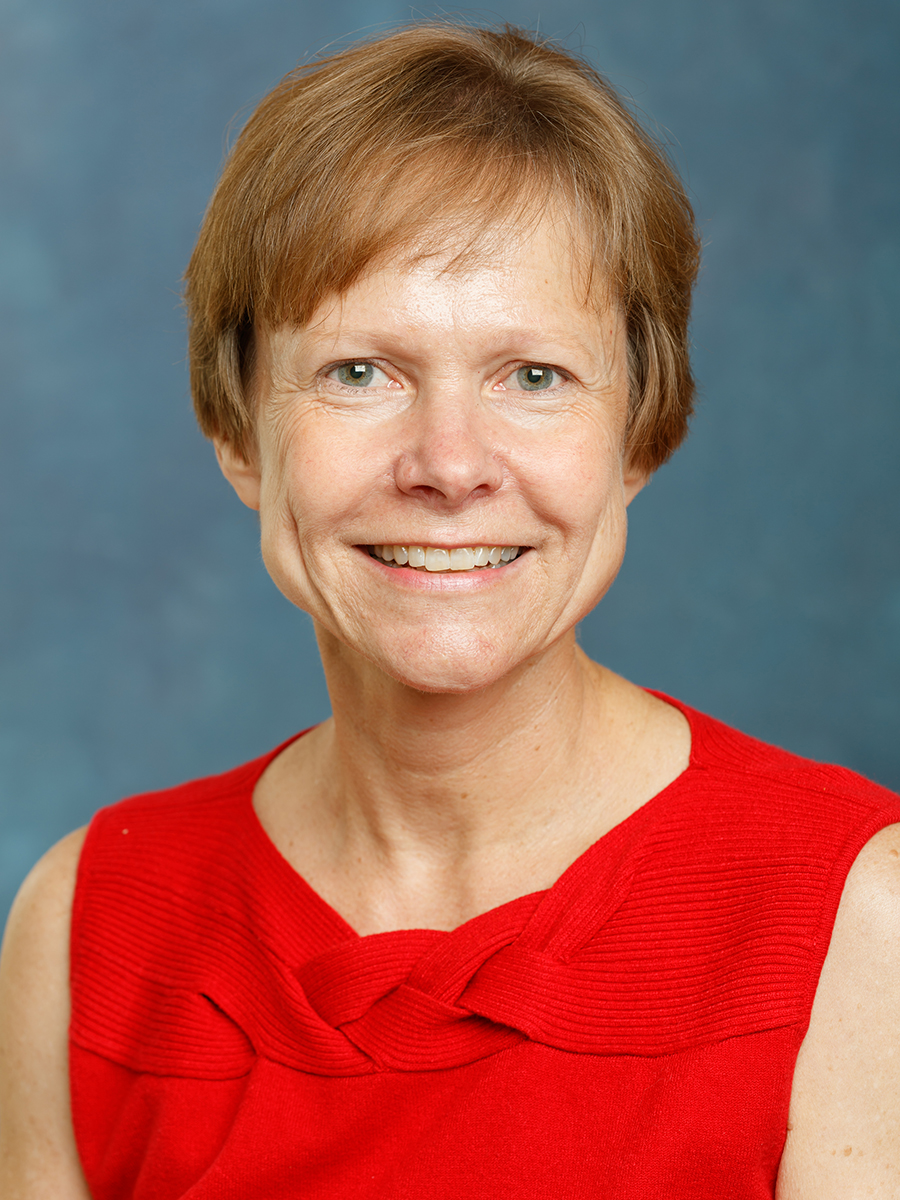
Karin Musier-Forsyth - Chemistry and Biochemistry
Structure and function of RNA-protein interactions critical for assembly of HIV-1 and other retroviruses; Quality control by aminoacyl-tRNA synthetases and related trans-editing enzymes. We collaborate with Michael Poirier on applying state-of-the-art single molecule methods to investigate HIV-1 genomic RNA conformational dynamics and RNA-protein interactions.
Collaborations with other Beckman mentors: Michael Poirier
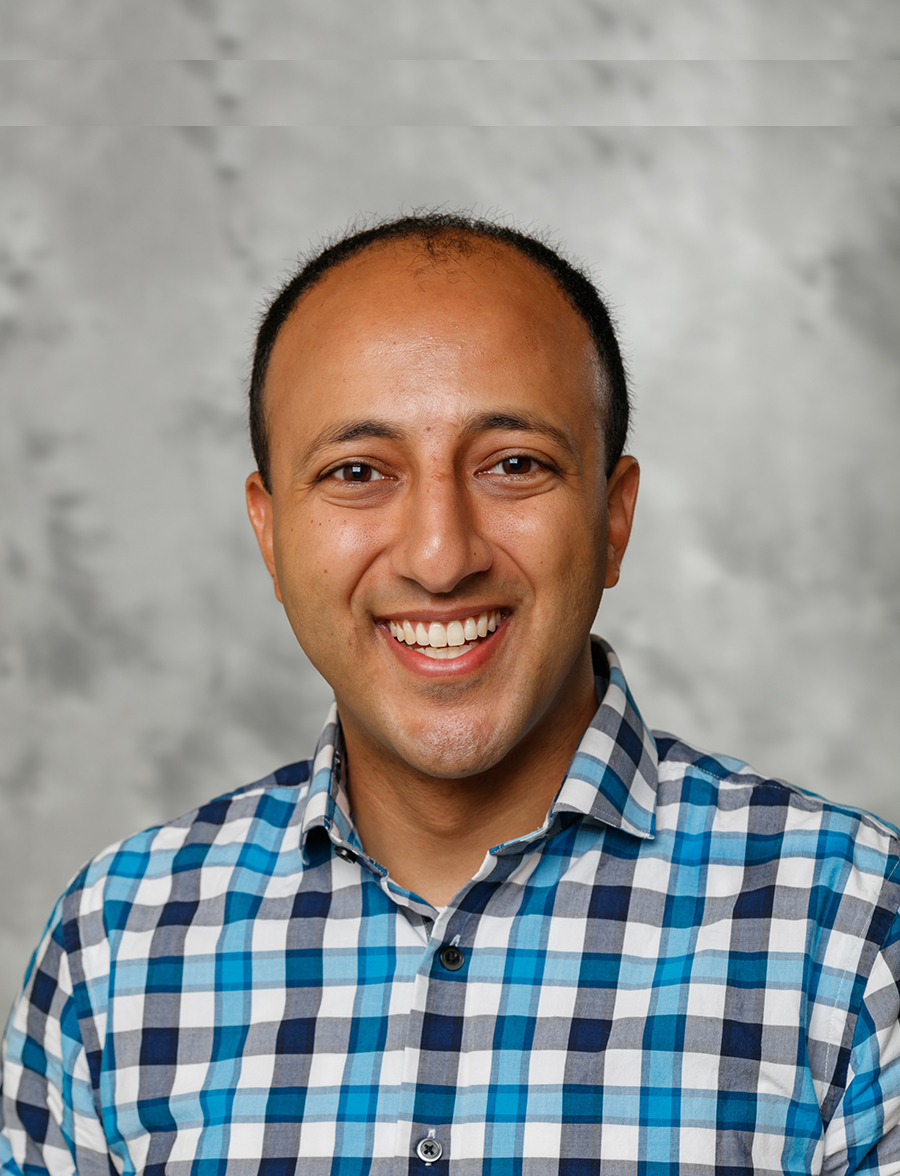
David Nagib - Chemistry and Biochemistry
Radical chemistry can afford opposite or orthogonal reactivity to classic two-electron pathways. By developing radical chaperone strategies that merge open (1e-) and closed shell (2e-) processes, we have harnessed this complementary reactivity and imparted new types of chemo-, regio-, and stereo- selectivity for remote, double, or reversed C-H and C-O functionalizations of alcohols, amines, and carbonyls. These radical chaperone tools are continually being developed to streamline the synthesis of complex, medicinally relevant molecules and heterocycles. Many of the synthetic methods that we have developed have been employed in the pharmaceutical industry by chemists around the world. And our rock star undergraduate alumni are currently earning PhDs, MDs, or are employed as medicinal chemists at top pharma, biotech, and chemical companies.
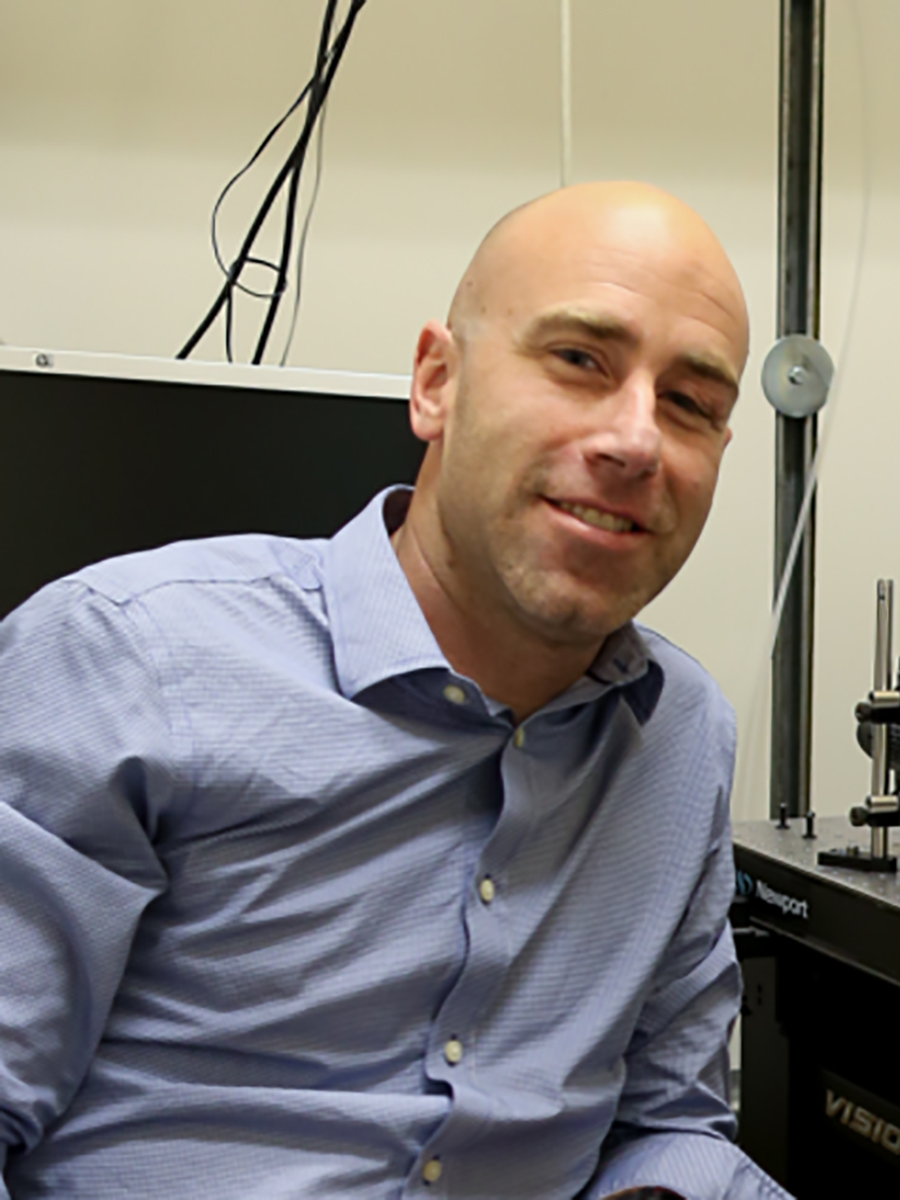
Michael Poirier - Physics
The Poirier lab’s primary focus is to understand chromatin regulation of transcription, by applying a cross-disciplinary approach that combines biochemical, biophysical, single molecule methodologies and DNA nanotechnology. We currently are focusing on understanding how pioneer transcription factors and transcription co-activators function in combination with nucleosome and chromatin structural dynamics to regulate the initial molecular events that result in transcription initiation. In addition, we have a significant effort in developing DNA nanodevices for (i) probing biomolecular interactions in vitro and in vivo, and (ii) converting thermal energy into mechanical and signaling outputs. Finally, we are working as part of two collaborations to understand at the single-molecule level two ribonucleoprotein complexes: RNase P, and the 5’-UTR of the HIV RNA genome.
Collaborations with other Beckman mentors: Carlos Castro, Venkat Gopalan, Karin Musier-Forsyth, Jon Song
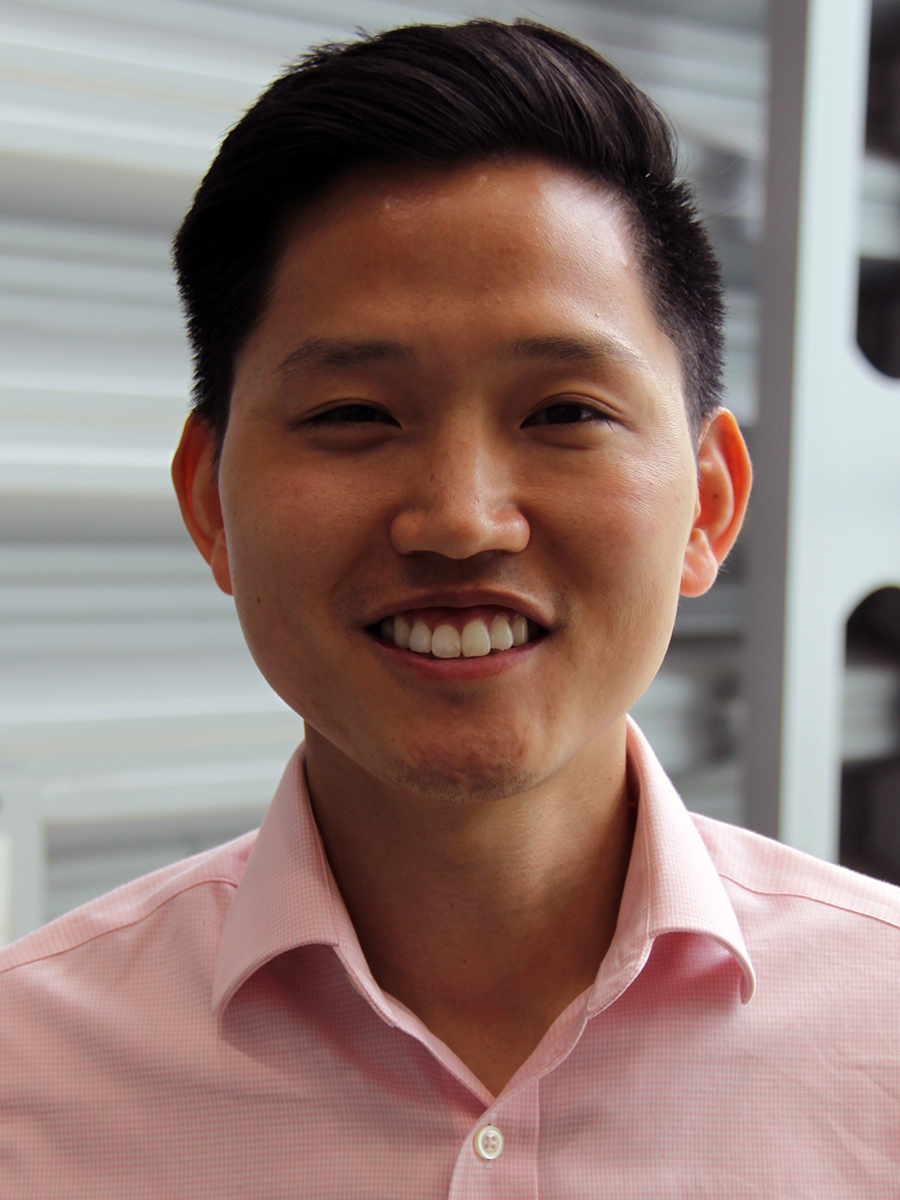
Jonathan Song - Mechanical and Aerospace Engineering
The Song research group integrates engineering technology with cancer research to bridge the gap between in vitro and in vivo research. The microsystems that are used and developed are readily amenable for incorporating novel molecular and genetic approaches, force probes, and imaging and detection techniques. This collaborative research entails the joint efforts of biomedical scientists, physical scientists, and engineers. Using this interdisciplinary approach, we aim to elucidate the physical and chemical processes that underlie different pathophysiological conditions. Furthermore, we wish to leverage our microsystems approach as tumor disease models to test new therapies and understand the mechanisms that confer resistance to current therapies.
Collaborations with other Beckman mentors: Carlos Castro, Michael Poirier
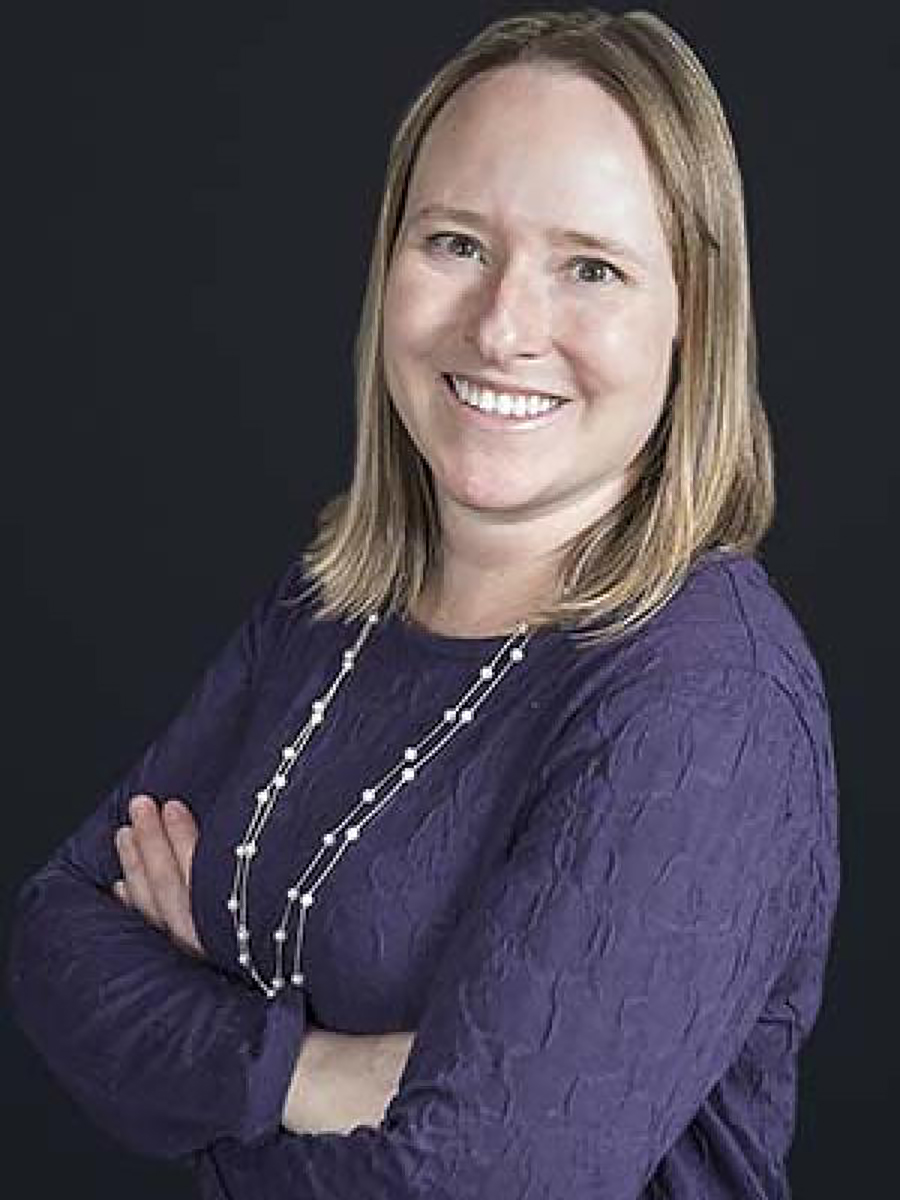
Christine Thomas - Chemistry and Biochemistry
At the heart of sustainable, renewable, and "green" production of fuels and fine chemicals lies the activation and functionalization of chemical bonds. Whether it be the conversion of small molecules (CO2, O2, N2, NH3) into fuels and chemical feedstocks, the conversion of saturated hydrocarbons into value-added products, or the incorporation of new functional groups into organic molecules, the future of the chemical industry is dependent upon the development of new technologies to maximize efficiency and drive the world towards a more sustainable future. The science behind such technological developments is reliant on the fundamental design of homogeneous and/or heterogeneous catalysts (or those that lie at the interface of the two) capable of activating cleaving strong σ and π bonds. In many cases, these transformations are thermodynamically unfavorable, and typically involve multielectron redox processes. While the so-called "noble" or "precious" metals of the late 2nd and 3rd row transition metal series (e.g., Pt, Pd, Rh, Ir) are the most well-studied in catalysis, these metals are also among the least abundant elements on the periodic table and therefore cost prohibitive and difficult to obtain. The most sustainable catalysts, however, would involve far less expensive and more Earth-abundant metals such as those in the 1st row transition series (e.g. Cr, Mn, Fe, Co, and Ni) or early transition metals such as Ti, Zr, Nb, or Mo. These metals, however, are often relatively redox inert and/or favor one-electron transformations, which are often difficult to control or predict. Research in the Thomas laboratory focuses on addressing these challenges by exploring cooperation between different components of bifunctional catalysts. Specifically, the Thomas group is interested in fundamental catalysts design principles involving (1) two metal centers in bimetallic frameworks and (2) metal centers and non-innocent ligands, and the unique effects that such cooperation can have on the reactivity of these species. All projects in the Thomas group entail the synthesis of new ligands and transition metal complexes. Although the primary focus of our research is synthesis, we use a large variety of characterization techniques including single crystal X-ray diffraction, multinuclear NMR, IR, UV-Vis, Mössbauer and EPR spectroscopies, as well as magnetic measurements, and electrochemistry, and computational studies.
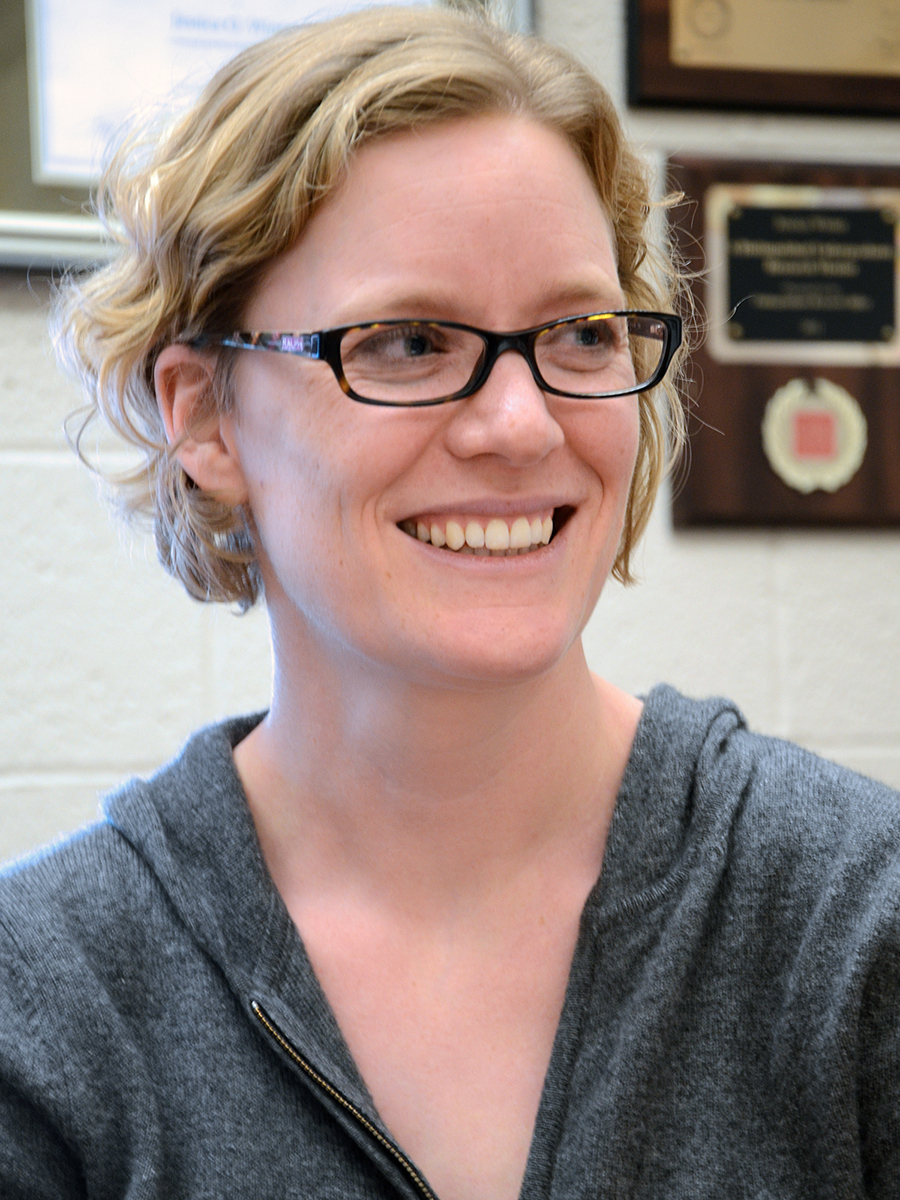
Jessica Winter - Chemical and Biomolecular Engineering, Biomedical Engineering
A new direction of study for us is the combination of DNA with inorganic nanoparticles. DNA is an interesting material because of its biological function, but also because it can be used to template and control nanoparticle assemblies. DNA is nature’s computer and RNA is nature’s robot. DNA holds information that is processed by ribonucleic acid comprised ribosomes. Ribosomes have complex 3D structures and perform repetitive processes using information provided by DNA strands. This process even includes process control elements through miRNA and siRNA regulation. We are using DNA to template nanoparticles into specific geometries to explore emergent applications, such as sensing or self-healing materials. We are also using DNA to pattern ligand presentation on nanoparticle surfaces, and we are combining DNA with nanoparticles to create small machines, toward nanorobots.
Collaborations with other Beckman mentors: Carlos Castro
